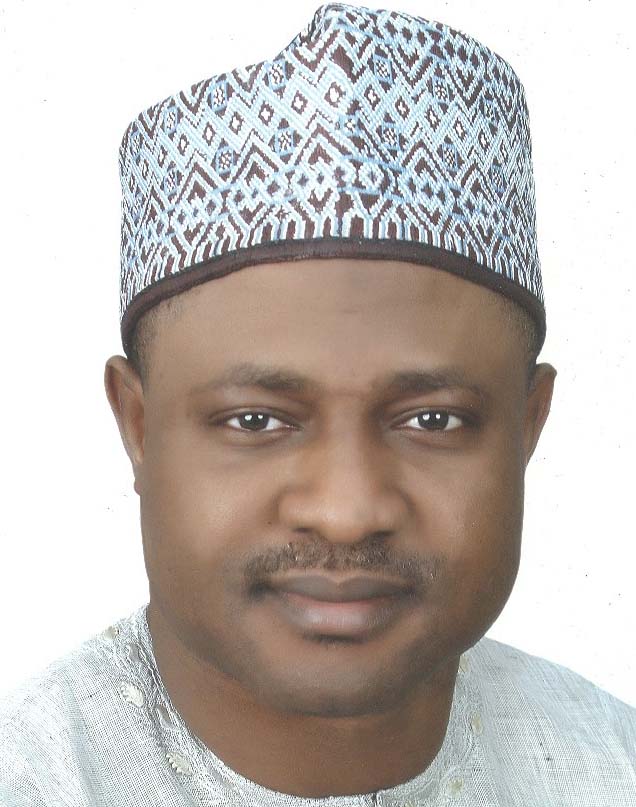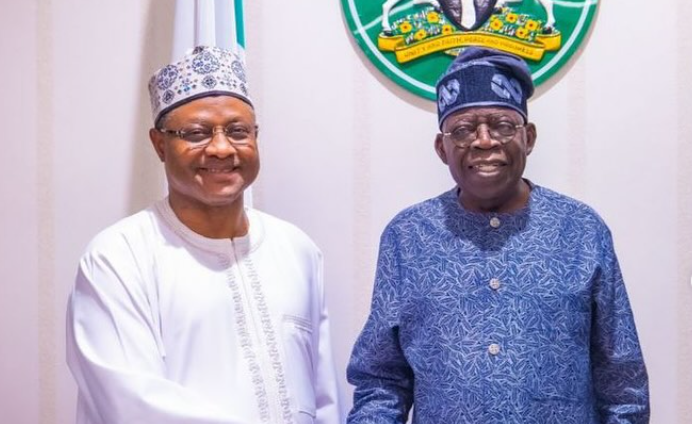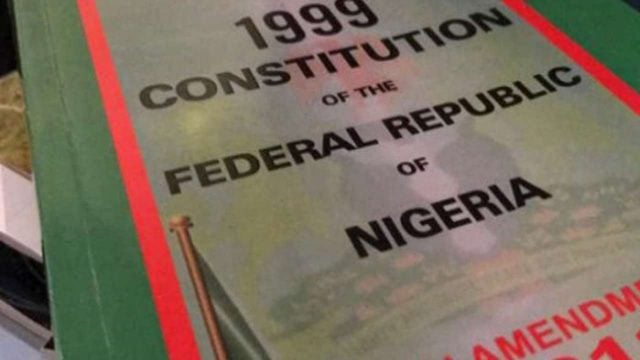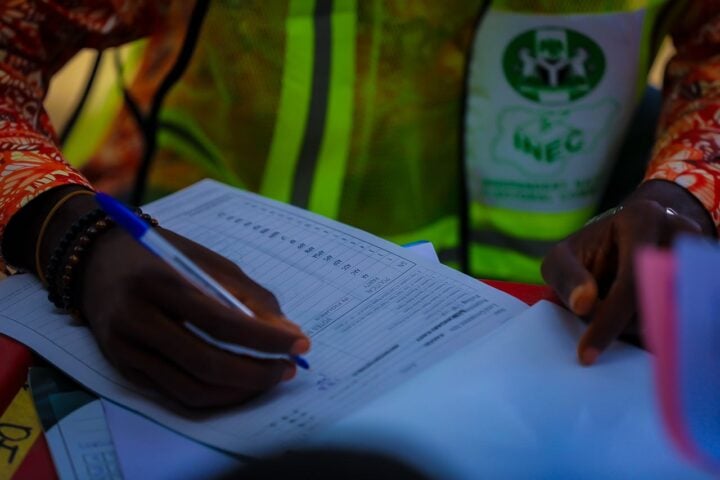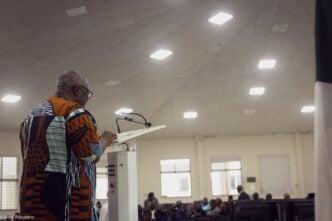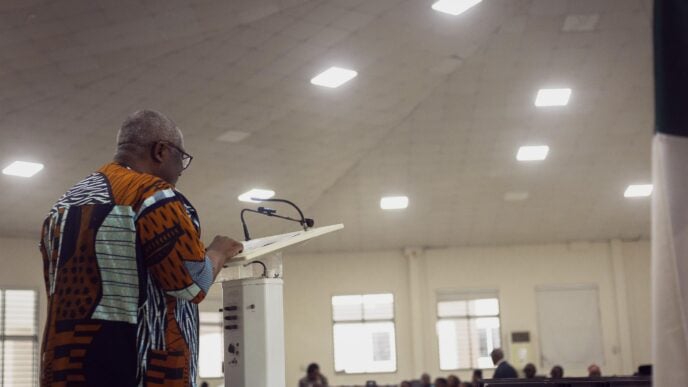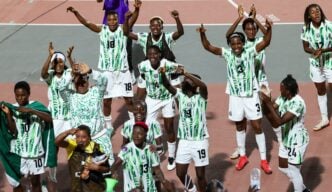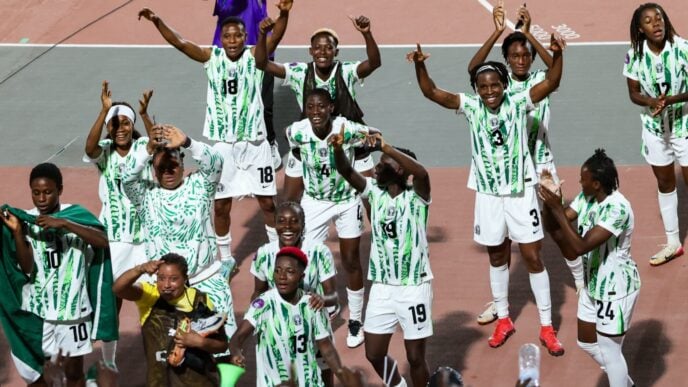L-R: Uba Sani and Bola Tinubu
Full text of a speech delivered by Senator Uba Sani, governor of Kaduna state, at the opening of a two-day interactive programme of the Ahmadu Bello Memorial Foundation, with the theme: Assessing Electoral Promises: Fostering government-citizen engagement for national unity.
It is with a profound sense of patriotic obligation and genuine humility that I stand before this distinguished assembly, convened under the esteemed auspices of the Sir Ahmadu Bello Memorial Foundation. This gathering is not a mere formality; it is an invitation to introspection, to earnest evaluation, and to the forging of a bold, forward looking strategy for our collective advancement. The conference’s theme — “Assessing Electoral Promises: Fostering Government–Citizen Engagement for National Unity”—speaks directly to the heart of democratic governance. It underscores the significance of honouring commitments and deepening connections between the state and the citizenry.
2. Let us be clear: electoral pledges are not campaign rhetoric to be conveniently forgotten after votes are tallied. They are solemn covenants — expressions of aspiration, hope, and obligation. To assess those pledges is not an act of cynicism; it is an affirmation of transparency and accountability. To foster genuine interaction between government and governed is not to encourage mere noise, but to cultivate the bedrock of unity— one grounded in shared progress, mutual respect, and restored trust.
3. Two years ago, this Foundation brought before you leading presidential aspirants, among them His Excellency Asiwaju Bola Ahmed Tinubu, GCFR. He addressed you not with empty phrases, but with a vision anchored in renewal, integration, and rapid development —especially for Northern Nigeria. He made bold commitments. Today, reconvened as a collective body of reflection, the question is unavoidable: has President Tinubu honoured the pledges he made?
Advertisement
4. As Governor of Kaduna State, former Senator, and a proud son of the North, I offer this response not from a point of political partisanship, but as one engaged in the journey of regional transformation. Yes — since assuming office as President and Commander in Chief, His Excellency Bola Ahmed Tinubu has doggedly kept faith with the North.
5. Yet, no president—however visionary—can succeed in isolation. Governance must evolve from the performance of a few in Abuja into the collaborative enterprise of many. It must be a dialogue — between citizens and their leaders, between timeless traditions and contemporary innovation, between constructive criticism and meaningful action. That is why gatherings like this are not optional or symbolic — they are vital. The Sir Ahmadu Bello Memorial Foundation reminds us of our duty not only to remember a legacy, but to renew it; not only to analyse challenges, but to confront and resolve them.
6. Upon assuming office as Governor in 2023, I was confronted with a Kaduna State under siege. Insecurity cast a long, dark shadow over our communities. Banditry, terrorism, kidnapping, and violent crime had become daily spectres —from the KadunaAbuja expressway to Birnin Gwari, from Chikun to Igabi and across the uneasy corridors of southern parts of our dear state. Fear was rampant. Kaduna — long celebrated for its resilience and cultural vitality — was being slowly eroded by chaos.
Advertisement
7. The Kaduna-Abuja highway — once the vibrant artery of commerce and movement — had become a corridor of dread, a painful symbol of governmental failure. The AbujaKaduna train attack of 2022 remains seared into our collective consciousness as a grim testament to the depth of the security crisis. Entire communities were abandoned, markets shuttered, and Kaduna’s very spirit trembled under the weight of fear. Frankly, had we attempted to organise this conference under those conditions in May 2023, the hall would have been empty—or worse—rendered inaccessible by persistent insecurity.
8. But we could not stand idle. We recognised instinctively that force alone — guns without governance — yields limited results. So we embraced a composite model: the Kaduna Peace Model — a paradigm blend of proactive security, community engagement, dialogue, and institutional alignment.
9. By God’s grace — and with the unwavering support of President Bola Ahmed Tinubu — our fortunes began to change. We prioritised peace, reinvigorated our security agencies, empowered local vigilance groups, and engaged communities with empathy, respect, and humility. Criminal enclaves along the KadunaAbuja highway were dismantled, markets in Birnin Gwari reopened after more than a decade, and ghost towns in Chikun and Igabi regained life. In the south of our state, through dialogue and reconciliation, we actively laid the groundwork for a lasting peace.
10. The Federal Government, under President Tinubu’s leadership, stood firmly with us. I commend the National Security Adviser, Mallam Nuhu Ribadu, whose coordination and resolve have ensured that our security responses are both intelligent and sustained. I salute the Honourable Minister for Defence, and the Honorable Minster of State for Defence, the Chief of Defence Staff, our service chiefs, and all security leaders whose courage and vigilance continue to protect our people. Their gallantry fills us with pride.
Advertisement
11. Yet, we must acknowledge that insecurity is not only a failure of arms — it is born of exclusion, of educational deprivation, and of policy neglect. Long before I became Governor, I emphasised that poverty is a potent instigator of instability. By the time we took office in May 2023, over sixty-five per cent of the population in the NorthWest was financially excluded, denied access to credit, savings, and hope. In that void, extremism and criminality found fertile ground.
12. As former Chairman of the Senate Committee on Banking and Financial Institutions, I foresaw that deepening financial inclusion would be critical. I championed the BOFIA Act of 2020, bringing fintech under formal regulation and laying a foundation for the digital economy. And as Governor, I issued an Executive Order to formally integrate 2.5 million of our most vulnerable residents into the financial system. We collaborate with banks, fintechs, civil society, and global partners such as the Bill & Melinda Gates Foundation to preserve and expand that momentum.
13. Financial inclusion is more than numbers — it is about dignity. It is about ensuring that a farmer in Giwa, a market woman in Kachia, and a youth in Zaria each has a stake in our economy and our collective future.
14. Education, too, has been a focal point. According to data and statistics by UNICEF, as much of 2023, over 70 percent of Nigeria’s 18 million out of school children reside in the North. This is not merely a statistic — it is a humanitarian crisis. An uneducated generation is vulnerable. That is why we are currently investing decisively in public education — rebuilding schools, training teachers, and offering incentives, including reduced tuition, to keep students in classrooms. Let us speak plainly: Northern Nigeria’s leaders ourselves must account for a history of failed transformation. We tolerated tokenism instead of tangible change. We neglected broad development. We allowed youth to languish in hopelessness. We failed to harness our human capital.
Advertisement
15. Indeed, at this point, I dare reiterate a fact that most of us here already know too well: our challenges in the North today are deeply-rooted issues that began decades ago. The region has suffered from years of neglect, policy inconsistency, and weak governance structures. Blaming His Excellency, President Bola Ahmed Tinubu, who has barely been in office for just two year, for the problems that have been festering for over 20 years – or more, ignores the complex history and systemic failures that span multiple governments and political actors. While the Tinubu administration bears the responsibility to find solutions, it is unjust and politically misleading to hold the administration solely accountable for the crisis that predates the tenure of the current President.
16. President Tinubu’s administration introduced a comprehensive student loan scheme, alleviating education costs and allowing students from modest backgrounds to pursue higher education. He is investing in infrastructure upgrades at federal institutions and enrolling thousands in vocational and digital training programmes targeted at preparing youth for opportunities in technology and innovation. In basic education, we are expanding classroom capacity, recruiting and training teachers, and renewing curricula — all to improve learning outcomes for underserved communities.
Advertisement
17. We are reimagining education not simply as literacy, but as empowerment. President Tinubu’s 3 Million Technical Talent initiative trains youth in digital and technical skills, while our own agricultural colleges and technical institutes connect learning with livelihoods. We are not only preparing future employees — we are cultivating job creators.
18. President Bola Ahmed Tinubu’s efforts in healthcare are equally transformative. More than a thousand primary health care centres across Northern Nigeria have been revitalised. In Kaduna we upgraded 255 primary health care centers to level 2, expanded immunisation programmes, and increased access to maternal and child health services. Procedures once limited to the urban elite —such as dialysis and oncology treatments — are now accessible to rural communities. Health insurance coverage has expanded dramatically, making illness less likely to trigger financial catastrophe. These transformational feats have been made possible through the strong collaborative efforts of the Federal and state government.
Advertisement
19. These improvements — in security, education, economic inclusion, health, infrastructure, and agriculture — are not isolated interventions. They form a coherent vision of national renewal that President Tinubu champions through his Renewed Hope Agenda. Across the North, infrastructure rebirth is underway.
20. The Sokoto–Badagry Superhighway — a vision dating back to the 1970s — is now finally coming to fruition. Stretching over a thousand kilometers, it will link the farthest reaches of the North to the economic pulse of West Africa. In rail, the Kaduna–Kano standard gauge line and the Kano–Maradi transnational corridor stand as forward thinking investments in regional connectivity.
Advertisement
21. In agriculture — long the economic lifeblood of the North — we are witnessing a quiet revolution. Farmers now benefit from solar powered irrigation and mechanised tools. Climate-smart programmes are reshaping rural livelihoods. Agribusiness is supplanting subsistence farming. Local markets flourish. Food systems grow more resilient and food sovereign. Infact, no President has in the history of Nigeria, supported sub-nationals in agricultural transformation as President Bola Ahmed Tinubu.
22. Central to this administration’s achievement is its unwavering commitment to national inclusion. Northerners hold key ministerial and institutional leadership roles — not as symbolic tokens, but as transformative actors shaping policy and driving change. Governance is being demystified, decentralised, and democratised.
25. Again, I emphasize: governance flourishes when it is inclusive. No president, no governor, no minister thrives alone. That is why this forum is not ornamental; it is catalytic. Sir Ahmadu Bello taught us that leadership is service rooted in vision — and that unity must be founded in justice. Let us not merely recall his legacy; let us renew it, elevate it, and embody it today.
26. In Kaduna State, we have embraced that mandate: completing long abandoned projects not for applause, but for lasting impact; building enduring institutions rather than mere infrastructure; expanding opportunities not just for the privileged, but for the forgotten majority.
27. Let this conference be remembered not for the rhetoric, but for the resolve it kindles. Let it mark the dawn of renewed national commitment — to the integrity of promises, the sincerity of performance, and the vitality of citizen engagement in leadership.
Across the domains of security, education, health, infrastructure, agriculture, and inclusion—the pledges made by President Tinubu’s administration are being honoured through bold, tangible outcomes. Certainly, more work remains; distances still lie ahead. But the path is open, and the destination is in sight.
28. May the memory of Sir Ahmadu Bello continue to stir our conscience. May his vision illuminate our path. And may we, in our time, prove worthy of the Nigeria he envisioned.
29. Thank you. May God bless Kaduna State, Northern Nigeria, and the Federal Republic of Nigeria.
Views expressed by contributors are strictly personal and not of TheCable.
